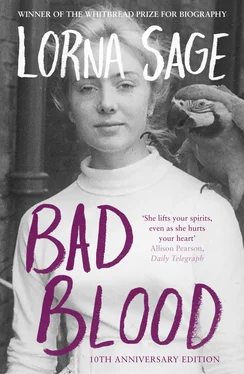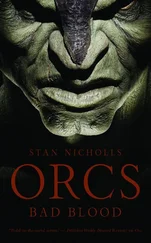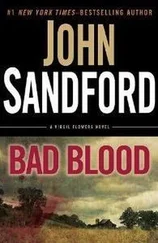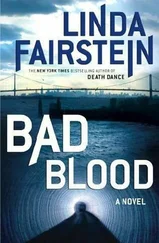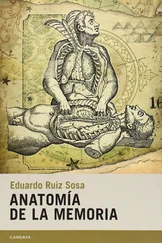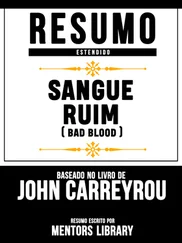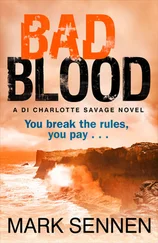In those years almost the whole country wore this ill-fitting uniform designed for non-combatants – serviceable colours, grating textures, tell-tale unfaded hems that had been let down, bulky tucks. Our true household craziness and indifference didn’t express itself in clothes, but in more intimate kinds of squalor: for instance, nearly never washing the bits no one could see. This was almost a point of vicarage principle, a measure of our hostility to the world outside and separateness from it. Inside our clothes civilisation had lapsed. And this wasn’t to do with money.
Grandma had the scented soap, but she didn’t use it – she bought it for its smell, and kept it wrapped in tissue paper in drawers and trunks. Her line was that her skin was too sensitive for soap and water. We even had a bathroom, but somehow the only way to wash was to boil the kettle and fill a bowl, and do bits – very little bits and usually the same bits – at a time. The resulting tidemarks, in my case round my neck, wrists and legs, would be desperately scrubbed at from time to time. Hair was another problem, a tangle of troubles: brushing was usually felt to be enough of a trauma, without the business of tangling it up all over again with washing, so that my pigtails stayed plaited for days on end. Our secret grubbiness was yet another thing that set us apart. If other children were dirty, that meant they were common, their parents were foully neglectful and slummy, you could catch things from them. One of Grandma’s favourite terms of abuse, in fact, was ‘dirty’ – villagers were dirty, callers were dirty, I mustn’t play with dirty children. So there were two different kinds of dirt, theirs and ours. It was a most metaphysical distinction, as befitted the vicarage.
As if to demonstrate the point, next door to us, also fronting on to the square, was a sixteenth-century tumbledown timber and brick cottage crammed with children I wasn’t supposed to mix with – the Duckets, one of Hanmer’s most shameless tribes. The wall that divided us from them provided me with a perch from which I could look down into their back garden. Our side had a lawn with borders and apple trees, and was neglected and overgrown and peaceful. Theirs was like a bomb-site, a muddy, cratered expanse with twisted pieces of old prams and bike frames, and shards of crockery embedded among straggly weeds and currant bushes. The Duckets epitomised what my grandmother meant by ‘dirty’: they were openly poor (the father was a farm labourer), they bred like rabbits and they spilled out of their house wearing their ragged hand-me-downs for all to see.
The vicarage was a secret slum, but the Duckets’ doors were always open, so you could see Mrs Ducket with her hair in curlers running about bare-legged in slippers, or – even more scandalously – sitting down with a cup of tea and a fag. They had no secrets. Their kitchen drain (on the opposite side to us) disgorged a slow stream of soapy slime and tea-leaves into the open gutter that ran along the main village street. The Duckets kept yappy dogs and skinny cats, and had kittens and ferrets in their pockets; they didn’t go to church, although sometimes one or two of the children would be spruced up and sent to Sunday School. While I was forbidden the square, they were positively driven out of their house, back and front, in all weathers, clutching wedges of bread and damson jam. They reached over our wall and picked the apples, according to Grandma. And (the crowning horror) they had bugs in their hair.
The Duckets made me feel lonely. Even the bugs were more fascinating than frightening. Once or twice I managed to ‘play’ with Edna, the girl nearest to my own age, through the crack in our side gate. She squatted in the square, I squatted in the vicarage kitchen yard; I squeezed my dolls through the gap one by one for her to look at and she squeezed them back. But otherwise I’d climb the wall and sit astride, watching Duckets in the plural, whenever I was left to my own devices. Which wasn’t often. Grandpa and I must have pottered about in church almost every day, and the echoing spaces, the stained glass and the smell of Brasso, chrysanthemums, damp pew-oak and iron mould from the choir’s surplices were heady compensations for isolation. He’d tell me stories and read me to sleep at night, when he’d often drop off first, stretched out on the couch, mouth open, snoring, his beaky profile lit up by the candle. In fact, he got so impatient with my favourite books (which both he and I knew by heart) that one momentous day, before I was four, he taught me to read in self-defence. This confirmed me as his creature.
I knew my name came out of one of the blacked-out books – Lorna from Lorna Doone – and that he’d chosen it. Now he’d given me a special key to his world. We were even closer allies afterwards, so that when he took me with him in the rattling Singer to Whitchurch, and into the bar of the Fox and Goose down Green End, it never occurred to me to tell on him. There were several expeditions like that. He was well known in drinking circles and was looked on as something of a speciality act, a cynical and colourful talker, always with his dog-collar to set him apart. I was the perfect alibi, since neither my mother nor my grandmother had any idea that there were pubs so low and lawless that they would turn a blind eye to children. Few were willing to, however; and there were other times when I found myself sitting outside on the steps of one of his favourite haunts, an unfriendly place with a revolving door called the Lord Hill, in the company of streetwise kids a lot more scary than the Duckets. Perhaps I did tell about that, or perhaps someone spotted me: at any rate, the pub outings came to an end.
Not the collusion, though. I’d kneel on the threadbare rug in his study while he worked on his sermon, or talked to the odd visitor, pulling out the books and puzzling over big words. Sometimes he’d show off my reading to strangers, but for the most part I was meant (this was the point of it, after all) to be quiet. When he was in very good moods he would draw pictures for me, starting mysteriously from the vanishing point and drawing out the rest into perspective. I learned that trick too, never very well, but well enough to disconcert people. Our mutual ‘minding’ turned by untidy stages into a sort of education. Since he was a man of many wasted talents, not only with words and images but also music, I might have had a full set of pre-school ‘accomplishments’, except that I was tone-deaf. Despite that, I was made a member of the choir as soon as I could sit still long enough – under strict instructions to open and shut my mouth in silence, along with the words. I was quite useful, in fact: I could be shifted across from the girls’ bench to the boys’ (my pigtails bundled up into my cap) depending on where there were the most gaps. Watching Grandpa dress up in the vestry, processing behind him, listening to him intone the liturgy and preach, I basked in his reflected glory.
I took to lining up my toys in a corner of the garden I called ‘the secondary school’, where I lectured them and told them stories. More than once they got left out overnight and were brought in sodden in the morning, to be dried out in the oven of the kitchen range. My teddy, a utility bear with a flabby square stomach made out of flowered cotton, was scorched ever after. An omen there.
I was going to have to go to school soon and that meant the village school, which would make nonsense of the dirt distinction, and – as it turned out – leave scorch-marks on my spoiled soul too. There was some reluctance to send me there sooner than need be, but the temptation must have become irresistible. When Grandpa was out, or hung-over, or not in the mood, I would wander the house in an ecstasy of self-pity, wailing ‘What can I do-o-o?’ over and over again, tears dripping down. This was my own precocious contribution to the economy of frustration and want, and nobody could stand it. If the day was fine, Grandma might take me out into the garden, where we’d exorcise my misery by attacking the brambles and nettles with sharp scissors, pretending they were Grandpa, or Duckets, or other people on her hit list (‘Ugh! Nasty old thing! Wicked old devil!’). She got even more fun out of this than I did, but she often didn’t feel energetic enough for such games. So at four and a bit I went to school, and the whole village gave a shake and rearranged itself. I got bugs in my hair and started to lead a double life: one of the many – Hanmer school had a hundred-odd pupils, aged four to fourteen, in 1947 – and yet the sole vicarage child. I put about the story that you could play in the churchyard if you played with me.
Читать дальше
